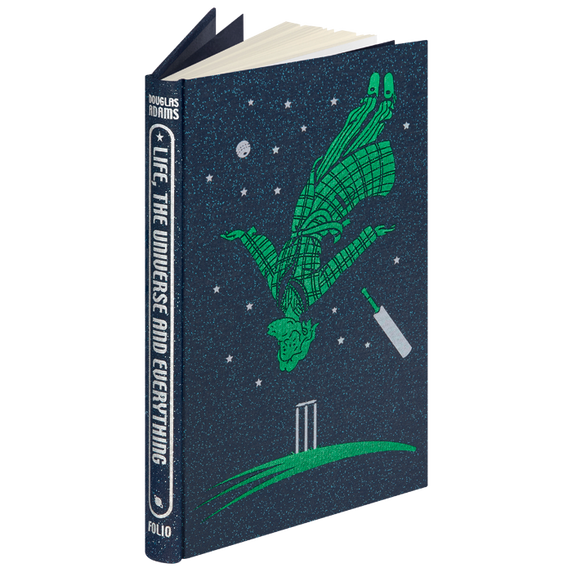
More inspired lunacy in the third of Adams’s ‘trilogy of five’, here introduced by his friend, the acclaimed comedy writer Jon Canter.
Illustrated by Jonathan Burton
Introduced by Terry Jones
In the first in his ‘trilogy of five’, Douglas Adams introduces us Earthbound readers to Zaphod Beeblebrox, the Babel fish, Pan Galactic Gargle Blasters and Marvin the Paranoid Android.
‘A wonderful and exhilarating ride’
- Terry Jones
The earth is about to be demolished by the Vogons to make way for a new hyperspatial express route. Luckily for Arthur Dent, his friend Ford Prefect turns out to be an alien from Betelgeuse and ‘a roving researcher for that wholly remarkable book The Hitchhiker’s Guide to the Galaxy’. Seconds before the planet is vaporised, Arthur and Ford escape by hitching a lift on the flagship of Prostetnic Vogon Jeltz ...
Douglas Adams brilliantly combines science fiction with the finest tradition of English humour. In this, the first of his ‘trilogy of five’, he introduces Earthbound readers to Zaphod Beeblebrox, Marvin the Paranoid Android, Pan Galactic Gargle Blasters, the Babel fish and the stolen Heart of Gold starship. Ford knows how to see the Marvels of the Universe for less than 30 Altairian dollars a day, and is overjoyed to be back on the road. Arthur takes a different view. Cut adrift in a strange universe, his planet a smoking ruin, he frequently has to be reminded of the friendly advice inscribed on the cover of his new guidebook: DON’T PANIC.
Bound in blocked glittered cloth
Set in Sabon
192 pages
Frontispiece and 7 colour illustrations
Plain slipcase
9˝ × 5¾˝
‘Inspired lunacy that leaves hardly a science-fiction cliché alive.’
- Washington Post
An international best-seller and a comedic triumph, this pan-Galactic odyssey reveals its author’s erudition on all topics relating to Life, the Universe and Everything. It has appeared in film, radio and television adaptations all over the world – and possibly beyond. This Folio Society edition is introduced by Terry Jones, a friend of Adams and fellow traveller in the universe of surreal comedy.
